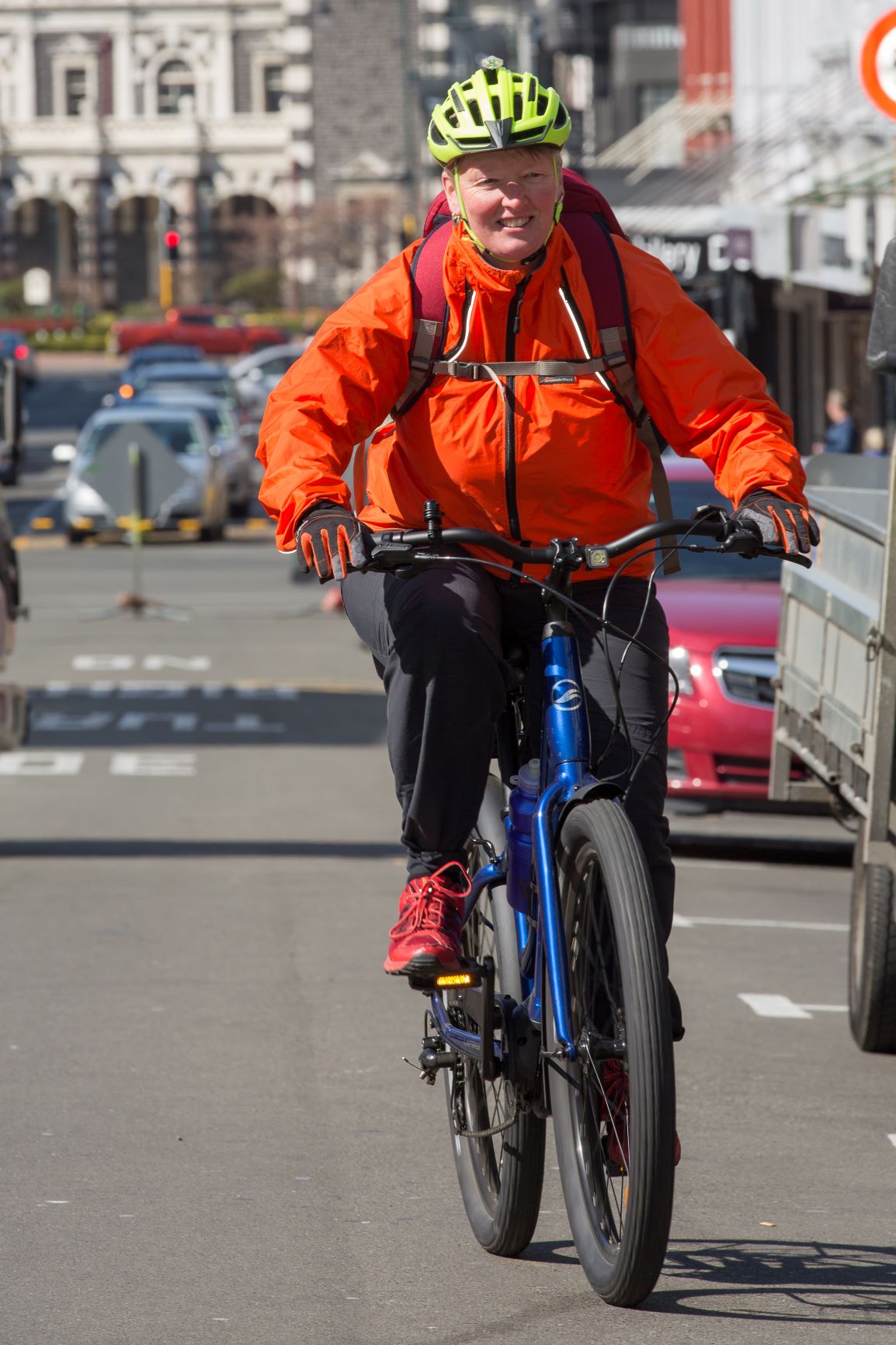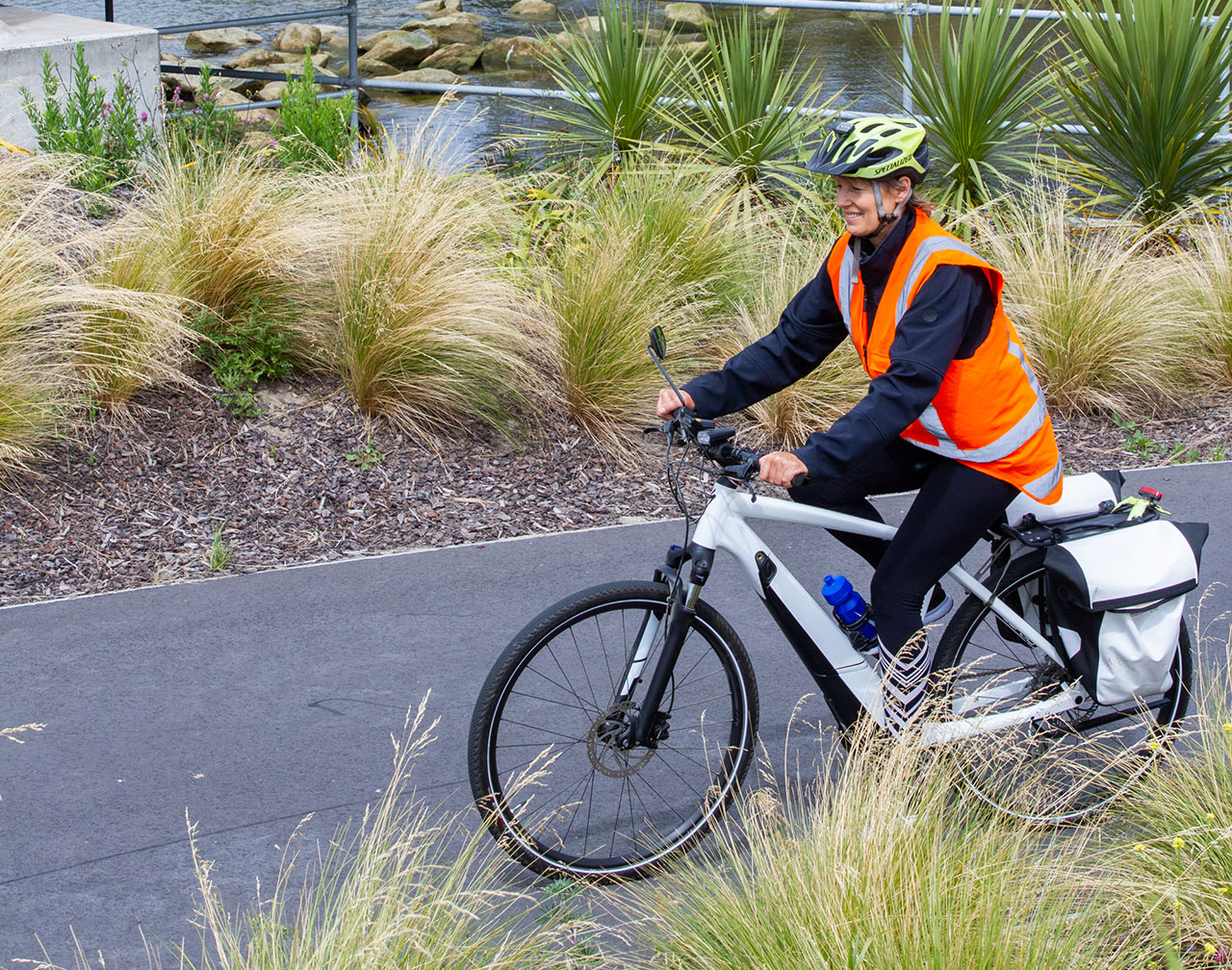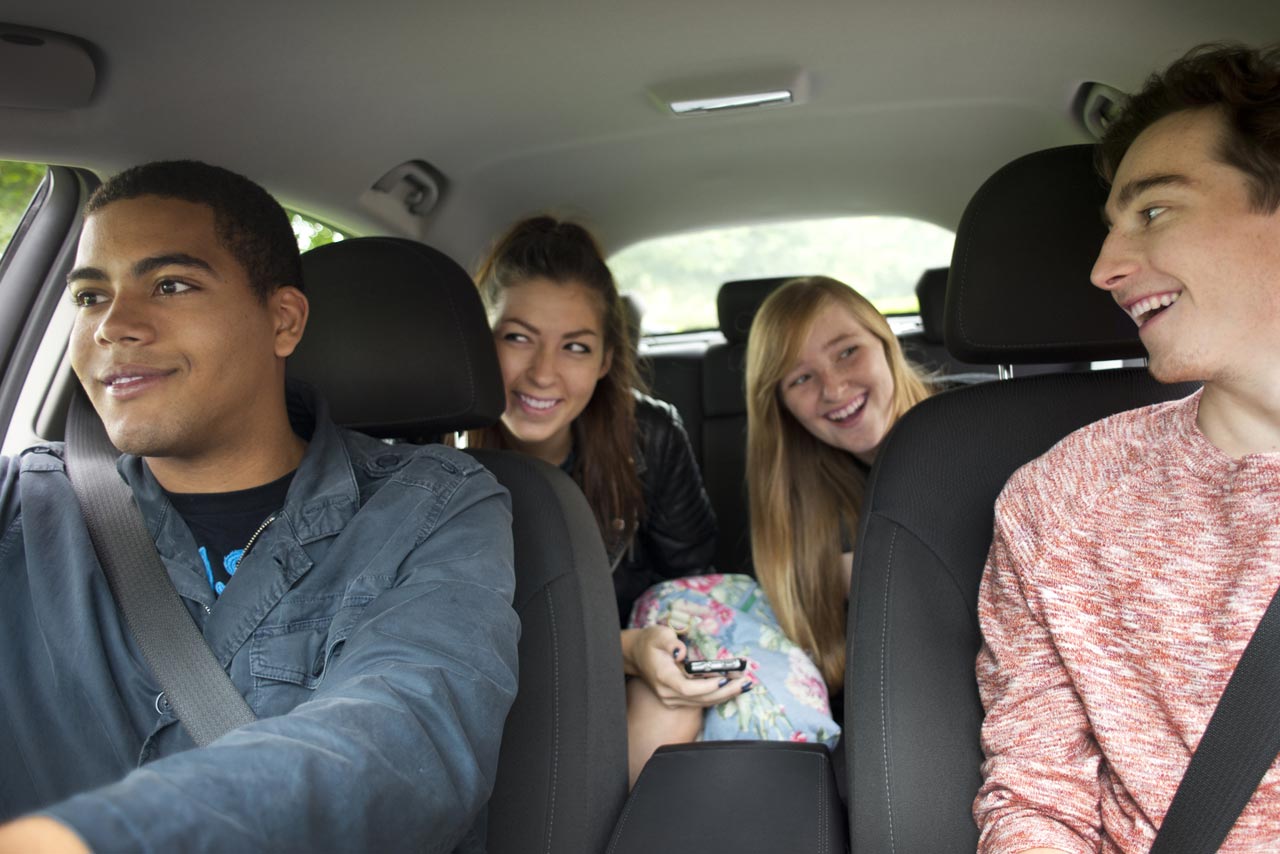Dunedin’s population is growing and, with major infrastructure projects underway and lined up, our city is changing.

It is time to make healthy and clever choices about your daily commute into town. It benefits you, the community and the environment.
Planning your commute
Are you new to commuting beyond the car? Find out how long it would take you from your home to your work if you walked, cycled or took the bus and what route best to take.
- NZTA Journey Planner (link to external website, new window)
- ORC Journey Planner (link to external website, new window)
If you are interested in changing the way you travel to a more sustainable option, but are unsure which option is best for you and where you travel, email us on transport@dcc.govt.nz to arrange a personal journey planning session, or for a journey planning workshop for your community and/or colleagues.
If you decide to take the car consider ridesharing, at least for some trips and days of the week.
If you already know people who might be keen, start by discussing it with them.
Mix it up! Tips to park and …… walk, bus, bike, scoot
Driving a car to work is often perceived as convenient, but with increasing congestion and close by carparks no longer a viable solution for everybody. How about driving (or taking the bus) part of the way and then walk/bike/bus or scoot the rest of it. Here are some examples of how it might work for you:
- Park at the edge of Bus Zone 2 (e.g. Green Island, Concord, Roseneath, and St Ronans Road on the Peninsula) and take the bus into town.
- Take your bike on the bus or your car to the start of a cycle paths (e.g. Vauxhall Yacht Club, Victoria Road or St Leonards Yacht Club) and ride into town.
- Carpool into town and take the bus on your way back
- Bike down-hill into town in the morning and take your bike on the bus back home
- Park on the edges of the parking cost zones and scoot or walk the rest of it. Find out about parking cost zones from Parking - where you can park web page.
-
Electric bikes are made for Dunedin
Cycling is a great way to travel around town. Unfortunately, hills in Dunedin are steep and can impose a barrier to cycling.
Electric bikes are as if they were designed for Dunedin. They take you up the hill easily and thereby add a whole new dimension to cycling in Dunedin. Have a go and try it out, most cycle shops are happy for you to try them out.
Find more information on e-bikes on NZTA e-bike web page (link to external website, new window)

-
Aotearoa Bike Challenge
The Aotearoa Bike Challenge (link to external website, new window) is a fun, free competition that’s all about seeing which workplaces can get the most people to ride a bike for just 10 minutes or more. It’s not just bragging rights on the line, we give away awesome prizes - including e-bikes! Join the challenge and log your rides in February and you're in!
-
Ride sharing

By carpooling with others in your neighbourhood who work near you, you can help to reduce congestion and make our transport system more efficient and operate more smoothly.
Carpooling can also significantly cut down your cost of driving and parking, as you will be sharing the cost with your fellow carpoolers. The more people who travel together, the cheaper it gets for the individual.
Sharing your ride can also be a fun and sociable way to start and end your working day.
How to carpool
The first step is to find people to carpool with. If you already know people who are keen, start by discussing it with them.
Once you’ve got your group sorted, make sure you exchange cellphone numbers so you can contact each other if plans change.
Staying safe
If you are carpooling with people you don’t know:
- Meet potential carpooling partners in a public place before carpooling with them to see if you will be happy to travel together.
- Tell someone else who you carpool with and how to contact them.
- If you don’t want to reveal where you live, arrange to be picked up and dropped off somewhere nearby.
- If you don’t want to walk home from a drop-off point in the dark, make arrangements in advance so that you don’t have to.
-
Work travel plan toolkit
A travel plan aims to help organisations run more efficiently by addressing transport-related aspects such as carparking, accessibility, business travel including vehicle fleet and environmental performance. A travel plan can help organisations run more efficiently and save money in the long-term.
Toolkit
This toolkit provides guidelines and resources for workplaces to develop and implement a travel plan, which will make business trips and staff travel more efficient. It provides links to resources and more detailed information.
-
Building your travel plan
- Travel plan toolkit
- DCC travel plan template
- Possible travel plan outcomes
- Potential engagement techniques
- Sample functions and skills of a travel plan co-ordinator
- Sample travel plan summaries
- Site audit checklist
- Tips for designing your package of activities
- Transport and policy assessment checklist
- Travel plan review tips timing and questions
- Travel plan summary template
Considerations for organisation types
- Considerations for higher education travel plans
- Considerations for hospital travel plans
- Considerations for shopping centre travel plans
Travel planning guidance for small businesses
- Small business workplace travel planning guidance
- Appendix 1 - small business workplace travel plan template form
- Appendix 2 - list of initiatives
- Appendix 3 - example workplace travel plan for a cafe
Examples of measures
Guaranteed ride home programme
-
Developing a staff survey
-
